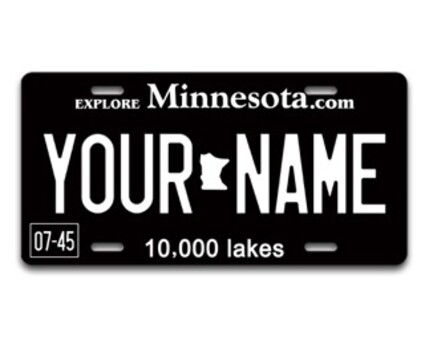New state laws in effect with new year
Gun laws, rental changes and sick leave rules in place
January 5, 2024
Three new laws that were central to the DFL trifecta's legislative agenda took effect Jan. 1.
Gun-safety laws, including so-called red flag warnings for people at risk of harming themselves or others, sweeping landlord-tenant changes and a statewide sick leave plan all became law on the first day of 2024.
Here are descriptions of the new changes to Minnesota law.
Paid sick leave
The sick leave law covers all-but the self-employed, even those who work for employers with just one worker. It requires employers to set aside one hour of paid sick time for every 30 hours worked, up to a maximum accrual of 48 hours a year. Covered employees include any worker who works at least 80 hours a year for a single employer, including part-time and temporary employees.
The law does not cover independent contractors.
The paid leave can be taken for the employee's own physical or mental illness as well as for treatment and preventative care. It can also be used to care for sick family members or to take family members to medical care and for absences related to domestic violence, sexual assault or stalking.
Employees can claim paid leave if the workplace or a school is closed for bad weather or other emergencies. More information on the program can be found on the Department of Labor and Industry website.
Minimum wage
On Jan. 1 the minimum wage in Minnesota was increased by 2.5 percent to adjust for inflation. Large employers are required to increase the minimum wage from $10.59 to $10.85 an hour. Wages for young people and those training, the summer work travel exchange visitor program, and small businesses will increase from $8.63 to $8.85 an hour.
In July, Minneapolis raised the minimum wage for small businesses to $14.50 and $15.19 for large businesses. In St. Paul, large businesses must pay employees $15.57 an hour, small businesses pay $14 an hour, and youth training is $11.90 an hour. Under St. Paul law, hourly wages increase every year.
Landlord-tenant
The long list of changes to the section of law that governs the legal relationship between housing owners and renters is a direct result of the DFL trifecta, lobbyists for both sides agree. In the recent past, only changes agreed to by both owners and renters could pass a divided Legislature. But in 2023, a pent-up demand from the tenant side was unleashed, leading one advocate to call it "the most substantial change in Minnesota tenant/landlord law in a single session of the Legislature in the 165-year history of the state."
Among the changes are that tenants must receive 14 days' written notice before an eviction for non-payment can be filed, eviction filings are expunged if a tenant wins a court dispute, landlords must list non-optional fees on the first page of the lease and in advertisements, landlords must give 24-hour notice before entering units and can enter only between 8 a.m. and 8 p.m. unless the renter agrees otherwise.
Other changes include additions to the list of emergency repairs: broken refrigerators and air conditioners, non-working elevators and pest infestations are now included. Tenants can also now end a lease for medical reasons, and there's a ban on mandated declawing or devocalizing of animals and a requirement that temperatures in rental units be at least 68 degrees from Oct. 1 to April 30. Previously there was no statewide standard, though some cities had ordinances.
Another renter provision was in the taxes bill. It changes how and when renters can apply for rental tax credit. Under the old system, renters submitted a separate form in August. The law change puts the credit on the state income tax filing. Because of the added convenience, the state estimates more renters will claim the credit, and officials have set aside $190 million to pay for the increased credit. The renters credit is refundable, which means it can both reduce taxes owed and be paid to tax filers by check if they don't owe state income taxes.
Gun safety
DFL legislators and Gov. Tim Walz had pushed a variety of gun safety measures for the last four years but ran up against both the GOP-controlled Senate and lack of support from some of their own members. But after negotiating with a quartet of new DFL senators from outside the Twin Cities urban core, a smaller - but still significant - package was included in the public safety and judiciary omnibus bill.
The new provisions allow family members or law enforcement to seek "extreme risk protection orders" - sometimes called red flag warnings - that would allow a judge to prohibit someone from possessing firearms for up to a year. The petition must show that the person is a risk to others or of suicide, and a hearing must be set within 14 days.
The court could then order a search warrant and the firearm owner would be required to turn over guns to a law enforcement agency or a federally licensed dealer. The same provisions extend background checks to some private gun transfers.
Other bills that became effective Monday include:
• School districts and charter schools must provide access to menstrual products at no charge to students in grades four to 12.
• The dollar amount that can be refunded to campaign donors increased from $50 to $75 for individuals and from $100 to $150 for joint filers.
• Meat-processing businesses must adopt a safe worker program to reduce and prevent musculoskeletal injuries. The program must include at least eight hours of training each year with two hours on ergonomics to prevent injuries.
• Oil refineries must include third-party or contract employees on training programs including ergonomics, and an increasing percentage of refinery workers must be graduates of or enrolled in apprenticeship programs. That percentage starts at 30% and increases to 60 percent in two years.
• Employers will no longer be allowed to request the pay history of job seekers (although applicants can volunteer that information). Sponsors said the provision was meant to help close gender and racial pay gaps.
• The Public Safety Department must provide real-time information on its website about the location and availability of drivers license examination appointments. The Office of Traffic Safety is now allowed to ask drivers license and ID card applicants to voluntarily provide race and ethnicity information.
Vehicle plates
Specialty license plates for the state's six major league sports teams will become available for fans of the Vikings, Wild, Twins, Timberwolves, Lynx and United. A portion of the fees paid must be deposited into each team's charitable foundations.
Additional specialty plates are for Lions Club International, Minnesota Missing and Murdered Indigenous Relatives with proceeds going to those causes.
Blackout plates, license plates with white letters and numbers on a black background, also became available Jan. 1.
Turtles
Last year, state lawmakers approved a law eliminating the commercial harvest of two species - western painted turtles and snapping turtles. It also prohibits the use of traps to catch turtles.
Turtles face a variety of threats, including habitat loss, road mortality and pollution. Scientists are concerned about the threat of overharvesting on turtle populations.
The Minnesota Department of Natural Resources first proposed eliminating the commercial turtle harvest two decades ago, but met with pushback, said Krista Larson, a non-game research biologist with the DNR.
As a compromise, the agency decided to allow current harvesters to keep their licenses, but not issue any new ones.
But the harvest numbers continued to climb as other states eliminated commercial harvesting, Larson said. Thirty-four other states ban the practice.
Forever chemicals
Packaging using "forever chemicals" is now banned, as of Jan. 1. Chemicals in the PFAS family are commonly used as a grease-resistant or waterproof coating for paper food wrappers, pizza boxes and takeout containers. Minnesota is one of 11 states that have moved to ban the chemicals with no exemptions, no minimum limit for PFAS and no cap to potential fines.
Deer pushback
A group of Minnesota deer farmers is suing the state over new regulations that they allege are intended to eradicate the industry.
In May, state lawmakers approved a moratorium on new deer farms in an effort to halt the spread of chronic wasting disease and protect wild deer.
Legislators also restricted the sale of registrations for captive white-tailed deer to immediate family members, and allowed those permits to be transferred only once.
In a federal lawsuit, the Minnesota Deer Farmers Association argues that the statute discriminates against farmers without immediate family and is an unconstitutional taking of private property by the government.
The new law also shifted regulation of deer farms from the Board of Animal Health to the Department of Natural Resources.
According to the lawsuit, the number of deer farming operations in Minnesota has fallen sharply from 274 in 2017 to 125 today.
According to the DNR, there are around 3,000 captive white-tailed deer in the state.
Seal, flag
With a Jan. 1 deadline, the State Emblems Redesign Commission fielded thousands of submissions for a new state flag and seal. It whittled down those options before landing on a state flag that uses a dark blue K-shaped figure to represent Minnesota with a white North Star inside and a light blue bar to the right, representing water.
The commission also adopted a new state seal that centers a loon preening on a lake surrounded by trees, wild rice and a North Star. The seal also includes the Dakota phrase Mni Sóta Makoce, which inspired the present-day name for Minnesota.
The new emblems are set to take effect in May unless the Legislature votes to override them.
Additional reporting from Minnesota Public Radio News, which, along with MinnPost, is a news partner with the Pine Knot News. For more on statewide issues, visit MinnPost.com and MPRNews.org.







